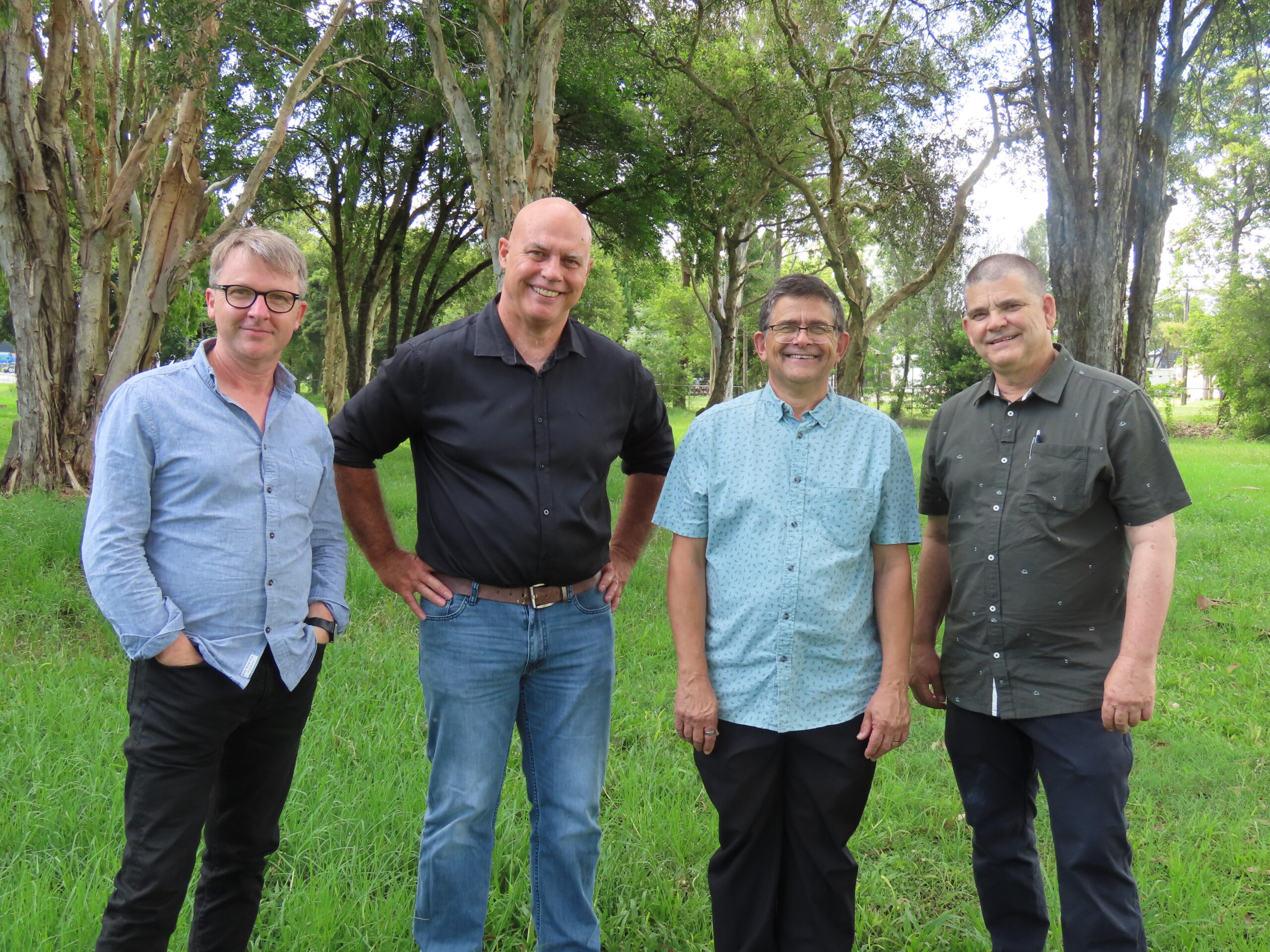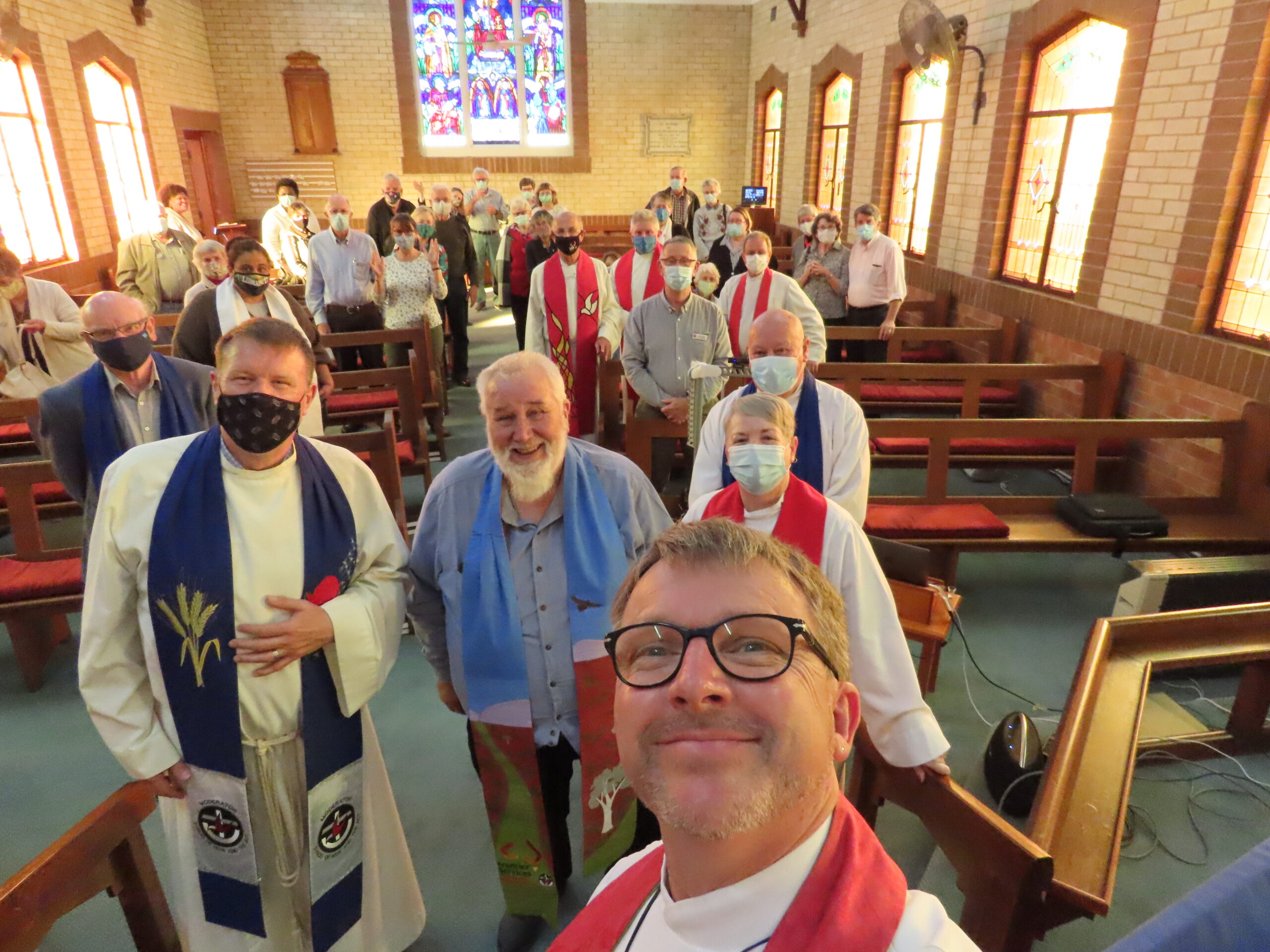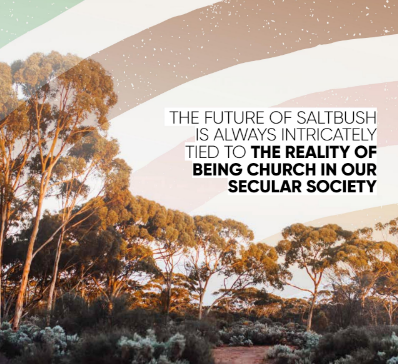Future Directions for the People of God on the Way was approved at Synod 2021 to reaffirm The Uniting Church Synod of NSW and ACT as a contemporary, courageous and growing Church. Future Directions renews our commitment to share our hope in the Gospel with the communities of NSW and the ACT through worship, witness and service. This reaffirms the Synod commitment to rural and remote ministry and the ministry of the Saltbush team. Insights asked the Saltbush team to share their stories, experiences, and hope for the future. They paint a picture of a ministry that is challenging, cutting edge, and inspired by their understanding of the early Church.
I imagine in my head that Jesus was thoroughly rural and after he visited any one of the larger towns, including Jerusalem, was pleased to be on the road out; those larger towns which were most likely unpleasant places before such things as easy water, sewerage and cooling in a time when all cooking was done around smoky fires.
As for the village Nazareth, the place where Jesus was more than likely born and raised, I’ve read a historically based narrative description of the place as… “Ancient Nazareth rests on the jagged brow of a windy hilltop in lower Galilee… there are no roads, no public buildings…. The villagers share a single well… no matter their occupation or skill, every Nazarean is a farmer… everyone raised their own livestock… everyone plants their own crops… The hillside hamlet of Nazareth is so small, so obscure, that its name does not appear in any ancient Jewish source before the third CCE…. It is in short, an inconsequential and utterly forgettable place.” This is the village of Jesus of Nazareth!
Of course, our world has wholly changed since that time and is now, according to the World Bank, slightly more urban than rural. Within our own Australian context our urban population is way higher, close to 85 percent of our total population and yet, both geographically and economically, the rural community is ever present and vital. Within the context of our own denomination and Synod, in our most rural Presbyteries, while we have many congregations that are active and missional there are few ministers and deacons and grounded relational teams to support both Presbyteries and our Christian communities.
This is the place of Saltbush and for me personally, Saltbush is about being a just church, belonging to a broad and diverse community of people and reaffirming the place of diverse, smaller gatherings of Christians exploring life and faith together and living discipleship out within the wider community and world. For me, Saltbush is about reminding us all, urban and rural, Synod and Presbytery, Congregation and individual, that we are a body of Christian people and that no part of that body is like the people of Nazareth, “inconsequential”!
Saltbush is a small team of people, supported through the work of the Synod of NSW & ACT, who are in ministry with individuals, groups, congregations and Presbyteries in rural and coastal NSW. At present we have Rev. Mark Faulkner, Rev. Tim Jensen, Rev. Peter Overton and Rev. Geoff Wellington. Although we all have slightly different roles and live all over NSW and the ACT we enjoy working closely as a team and exploring creatively our work alongside others.



Our work as the Saltbush team is to encourage and connect diverse Christian communities, irrespective of size or location and shape a movement of change within the church in the reality of the context in which the church finds itself in these times. Fundamentally the Saltbush team believe the only genuine way for change and renewal in the church and in our Christian communities (congregations) comes through knowing who we are as a people in relationship and significantly reshaping ourselves around both our practices of gathering (worship) and going (mission).
As part of building this relationship we provide each week a lectionary-based video message (Word around the Bush) and a Saltbush liturgy, which are easy and free to use individually, in groups and in congregations. We hold regular Saltbush Cafés and Saltbush @ Worship evenings where people from around the whole Synod gather online to explore life and faith together. Three times each year we print, both online and in post, our publication Ruminations with theological and personal exploration of a theme. We have published Talking about Salt – Difficult Conversations for Congregations, which is an opportunity for groups or congregations to discuss deeply who and how they are as a Christian community.
We also believe that anything online is only given life when it is in relationship and so we hold Saltbush Scattered Community Gatherings in diverse rural and coastal locations as an opportunity for conversation, connection and creative challenge. We also offer and lead retreats and are always open to the invitation to visit congregations and work alongside Presbyteries. Each of us contribute to the work of the wider church as needed by the Synod, Presbyteries, regions and congregations.
The future of Saltbush is always intricately tied to the reality of being church in our secular society, the struggle of the institutional church to be vulnerable as a people of God and the way we see change unfolding within and around. As more congregations and Presbyteries simply are unable to sustain the structures we have primarily shaped ourselves, even amongst the fear, there is great opportunity. This is the place of possibility and life to which the Saltbush team are drawn.

It is our hope that in continuing to build the missional relationship and remain in ministry beside people we can continue to grow a movement of change and Christian community, that while different is life giving within the wider work of the Uniting Church.
Over the past decade or so there has been an increased awareness that large corporate models, economic prioritisation and monochrome socialisation are fundamentally flawed and empty. Trust in the institution has eroded, any belief that an online “community” would satisfy the human need for relationship has declined and as an illustration, for over a decade now, people have been leaving the large, all in one, more than you can eat, shopping malls behind. It could be argued that people have been heading to the smaller, local, genuine, and relational.
One question the Saltbush team often ask groups of people is, “What do you think the church will look like in the future?” To this question we find the conversation leads us back to the early church, the smaller, scattered Christian community – a diverse community that simply gathered and lived out their faith within their own wider community.
Today one of the great commentators of missiology, theology and sociology is Rev. Michael Moynagh from the Church of England. In one of his books he ponders the place of the smaller local church as being, since the early church, the place that is faithful to the “integrated nature of reality”. By this he is thinking about the significance of a local community of Christians who are within the reality of the place they live and find themselves. He also says that the local community, the smaller gathered church, are part of the faithful incarnation of Christ within those places; villages, towns and communities. By this he is saying that in and through the local Christian community there can be the very way of Christ within and around.
Perhaps, as Michael Moynagh would say, the future of the church is to be found in smaller, diverse gatherings of Christians who simply come together and from that togetherness live out their faith within the reality of the communities in which they find themselves. And for the church as an organisation, this is both difficult and yet an opportunity!
As a Saltbush team the time ahead brings the following hopes and challenges:
- To grow the diversity of the team.
- To provide grounded leadership and new ways of structuring church where Presbyteries and congregations are overburdened.
- To continue to grow our missional relationship that is formed and founded in the practice of being Christian community.
- To establish and nourish new forms of Uniting Christian community within the relationship of the wider body of the church.
We are thankful for the support given to each of us and to the team as a whole by individuals, groups, congregations, Presbyteries/Regions and from within the Synod. We are mindful of those we talk with week by month and those we meet along the way. Peace and encouragement to you all.
Rev. Mark Faulkner
Director of Rural and Remote Ministry Initiatives











